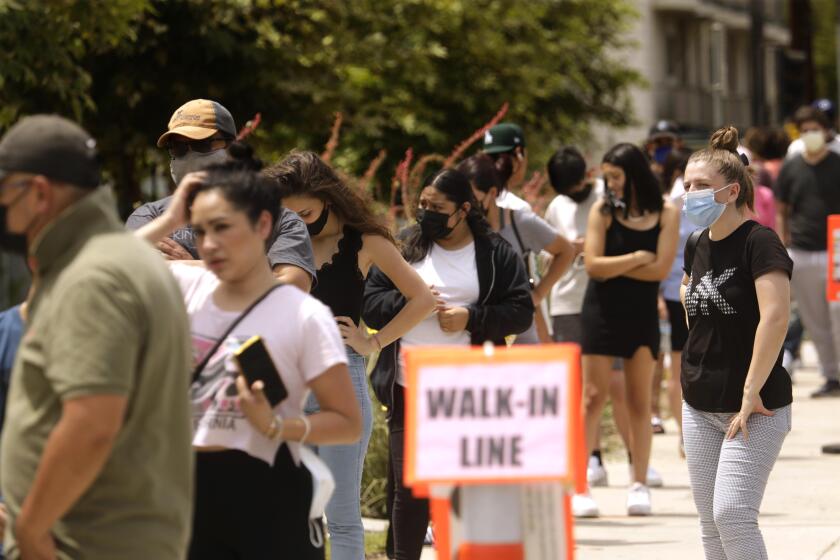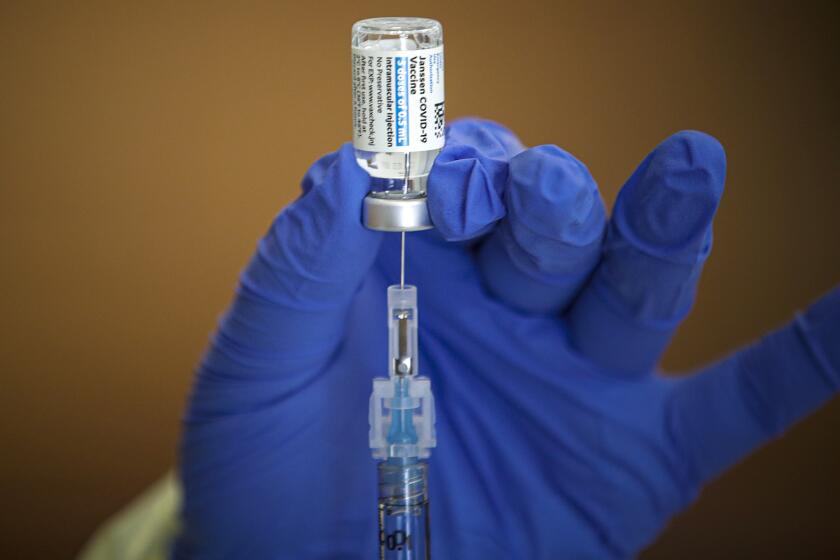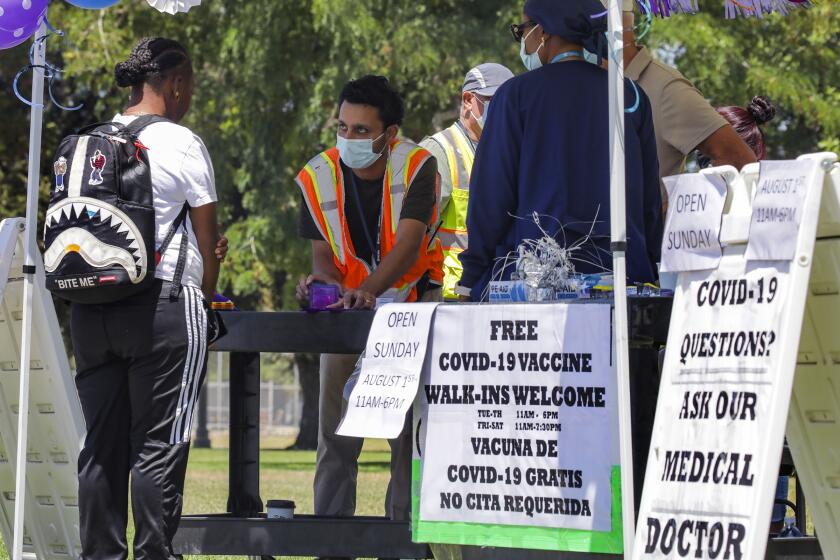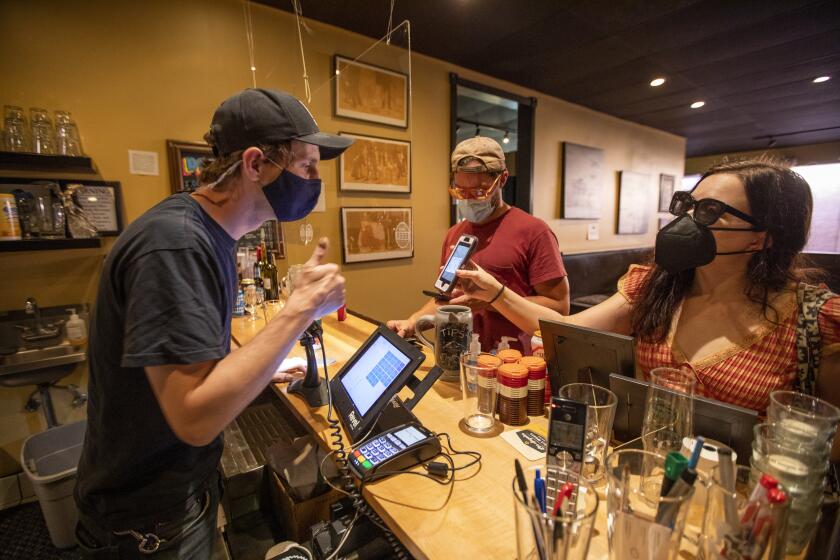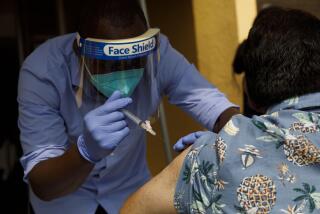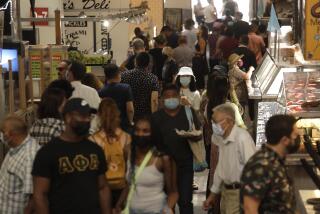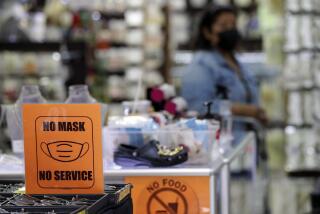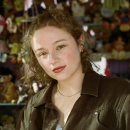Delta variant leaves Angelenos reassessing how to live their lives
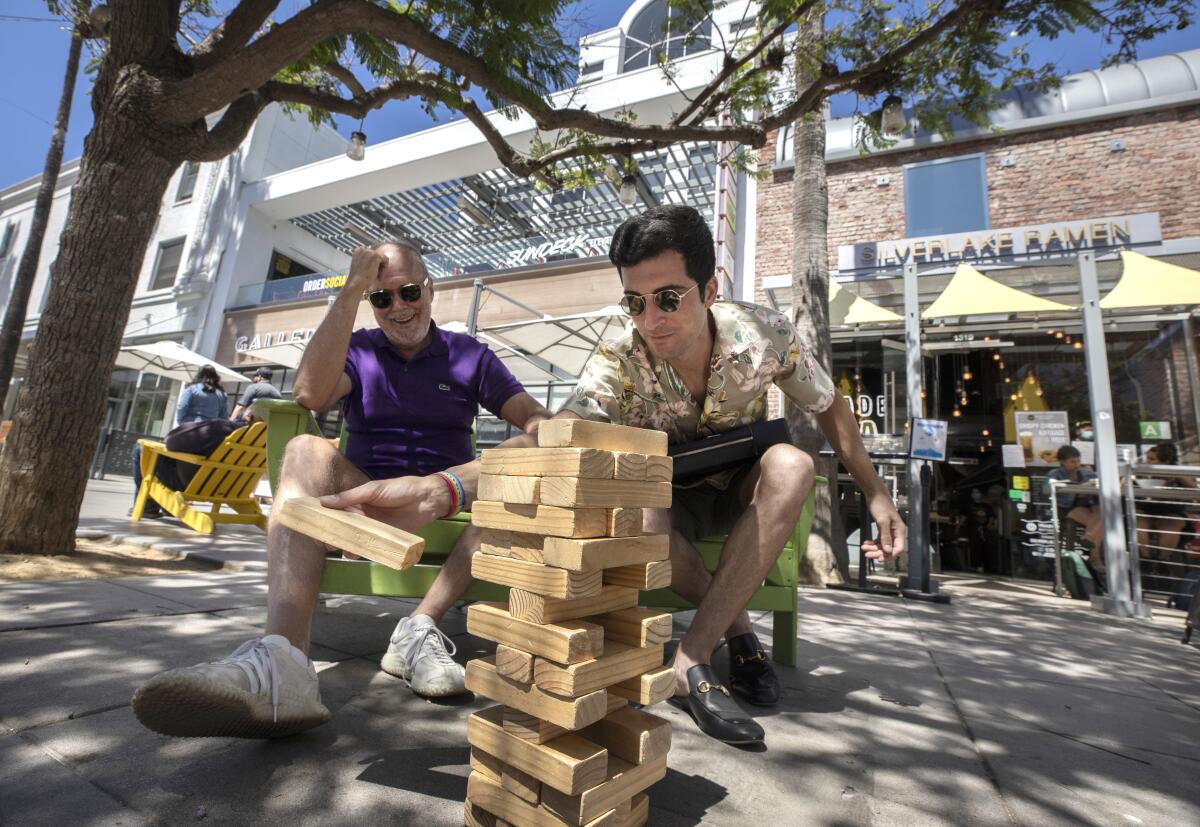
After getting his second dose of the Pfizer vaccine in April, Jim Savas resumed working out at his Santa Monica gym.
Now, as the Delta variant surges, Savas is still going to the gym â the Peloton bike at home doesnât quite cut it.
He is also planning to fly to Greece soon with his wife, Amy.
He believes the vaccine protects him against serious illness and death from COVID-19. He just doesnât want to get a so-called breakthrough infection and jeopardize his overseas vacation.
So he has stopped going to indoor restaurants and bars.
âIf we did contract the virus, the whole point of getting vaccinated is itâs not going to kill us,â said Savas, 64, who owns a digital communications company. âBut right now, weâre under the added pressure that we donât want anything to kill our trip.â
Delta arrived in Southern California just as life appeared to be returning to some semblance of normal.
Now, some are exercising a familiar caution, reverting to habits they formed earlier in the pandemic.
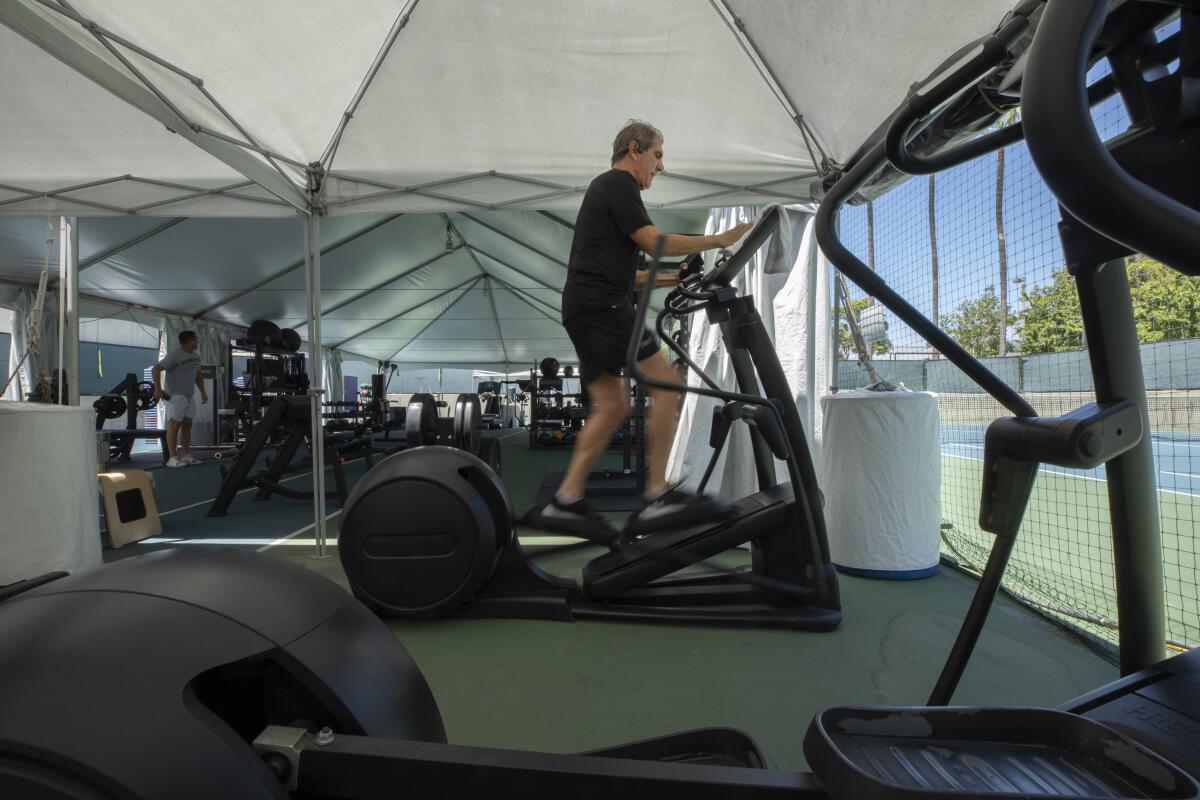
Others, vaccinated and fatigued by social isolation and restrictions, are reluctant to put their lives back on hold, packing airports, indoor bars and music venues.
The chasm in coronavirus case rates between unvaccinated and vaccinated Californians is continuing to widen, state data show, as some officials move to require the shots for both work and play.
And for some, including essential workers on the front lines, the pandemic never felt like it was in the rearview mirror.
Amid shifting guidance from public health officials, risk assessments are extremely personal. How important is it to use the specialized equipment at an indoor gym, get on a plane to see an older relative or meet up for a first date with someone of unknown vaccination status?
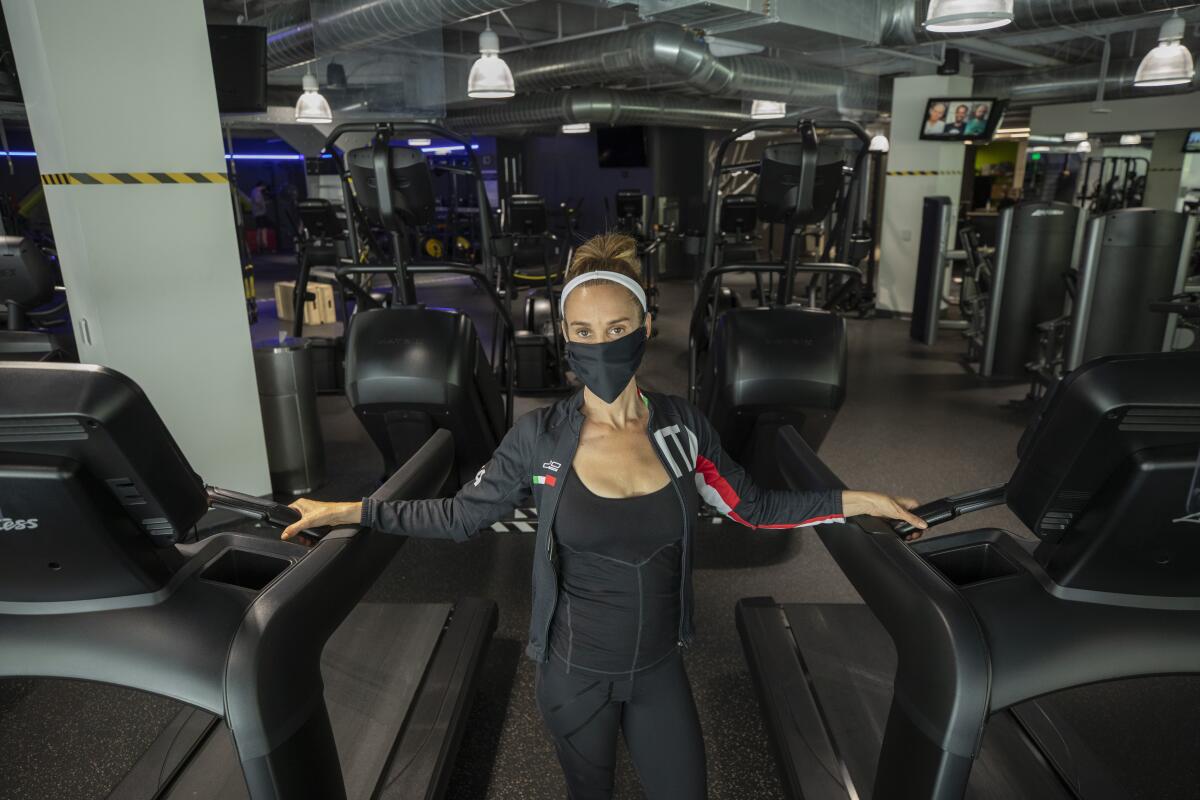
At TriFit gym, where Savas spent a recent afternoon jogging outdoors on an elliptical machine, dozens have canceled their memberships in the last few weeks, citing concerns over Delta, said co-owner Gina Baski.
About 70% had already canceled earlier in the pandemic, opting to work out at home or in gyms more lax about masking requirements.
Like many small-business owners, Baski feels battered by the latest reversal.
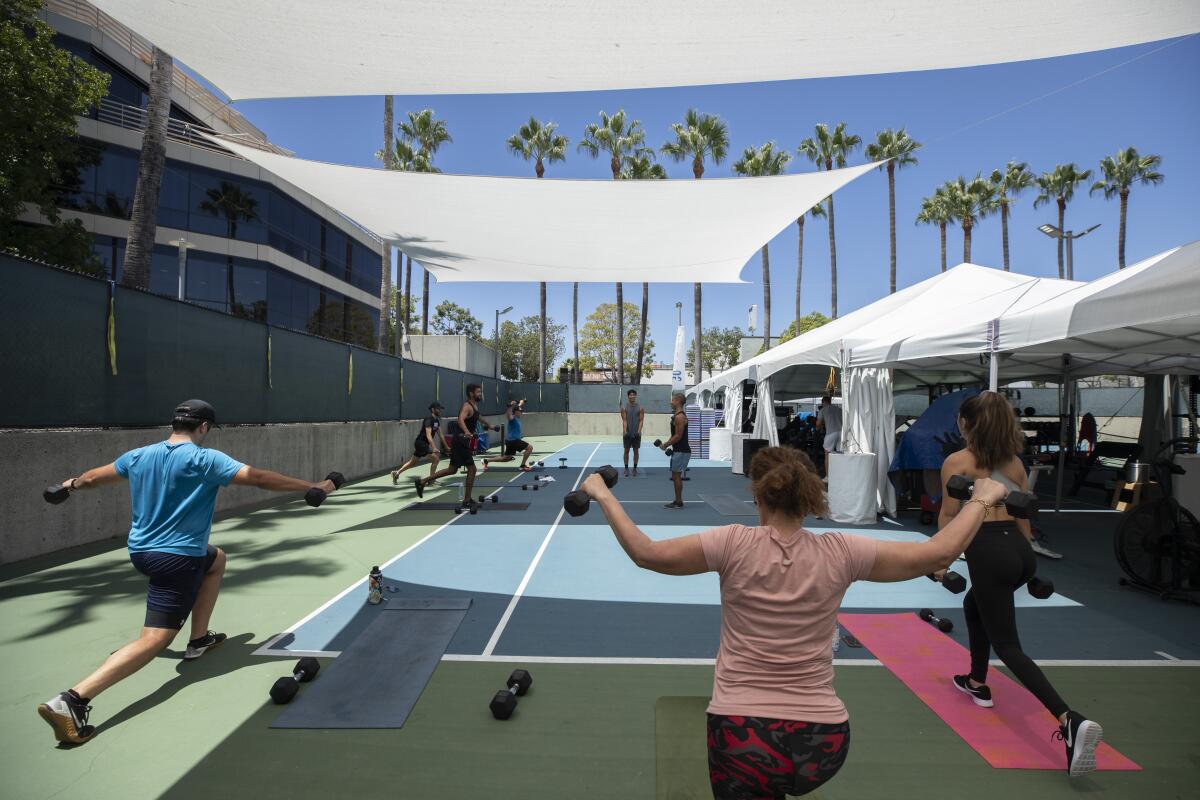
âItâs like post-traumatic stress disorder,â she said, standing beneath the white, wedding-sized canopy she had paid $30,000 to install over an outdoor gym that was nearly empty. âWe thought we were on the other side of it.â
Spurred by the highly contagious Delta variant, case rates and deaths are rising in Los Angeles County and the nation. Indoor masking in public spaces is back, and companies are delaying returns to the office.
In L.A. County, unvaccinated people are 19 times more likely to be hospitalized with COVID-19 than those who are fully vaccinated, Public Health Director Barbara Ferrer said last week.
But breakthrough infections, even mild ones, can cause lingering health problems, and fully vaccinated people can spread the Delta variant to others.
Health officials say theyâre largely unnecessary and the primary focus should be getting the unvaccinated to roll up their sleeves.
Robert Wachter, chair of the Department of Medicine at UC San Francisco, is back to double masking indoors.
He has given up indoor dining and poker nights with vaccinated friends. He will still get on a plane, protected by an N95 mask, but only for necessary travel.
If case rates fall, he will ratchet down the precautions, particularly if he gets a booster shot, he said.
âItâs unsettling and confusing and disappointing,â said Wachter, 63. âTwo months ago, most of us thought we would be in a better place now, and had it not been for Delta, we would be.â
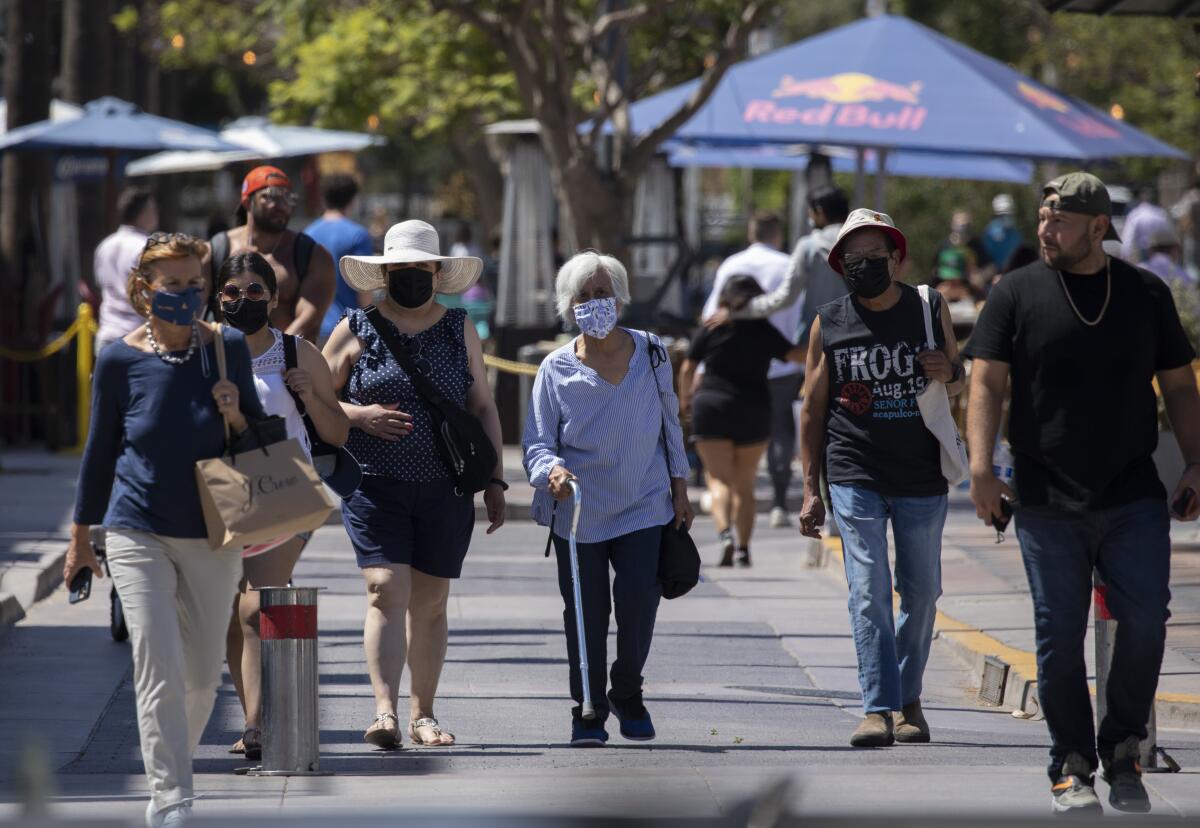
Earlier this summer, at Providence Saint Johnâs Health Center in Santa Monica, Barrett Jeffers and his colleagues had been allowed to take off their face shields, while maintaining masking and other precautions.
This month, as beds filled with COVID-19 patients, the hospital sent out an email and posted signs: Shields would once more be required.
âItâs kind of scary again,â said Jeffers, a technician who transports discharged and deceased patients, recalling the winter surge. âItâs almost like youâre reliving it.â
Californiaâs rate of daily coronavirus infections underscores the extent to which the pandemic has roared back to life as the ultra-transmissible Delta variant storms across the state.
Jeffers lives with his wife and daughter, who are asthmatic.
âI canât take anything home,â he said.
Natalie Murphy, a psychiatry fellow at UCLA, moved from Canada to L.A. with her partner in June, excited to live in a place where vaccines were abundant and spirits were high.
She had planned to join a gym and attend concerts. But as case rates rise in Santa Monica, she has held off. Many of her colleagues are masking up indoors, even in a group where everyone is vaccinated.
âIt feels like a marathon,â said Murphy, 29, who was vaccinated in February. âYou just want to take a break and for it to be over, and you canât see the finish line.â
Murphyâs background in psychiatry has helped her deal with the âpowerlessness and helplessnessâ she feels as the virus again spreads.
The L.A. City Council has voted to direct city attorneys to draft a law requiring people to be at least partially vaccinated before heading to indoor sites.
âIt keeps changing,â she said. âIt might get better, but it might not. I was mentally prepared for it, and now Iâm kind of accepting it.â
Some people with family members who are elderly, immunocompromised or too young to get vaccinated are curbing their behavior.
Travon Rasberry bought tickets to a music festival in Chicago after receiving his first dose of the vaccine in February.
It had been a year since his last vacation. But concerns about the Delta variant pushed the hotel manager to cancel his upcoming flight.
âRisking getting Delta isnât worth it,â Rasberry, 36, wrote in an email, adding that his mother canât take the vaccine for medical reasons and that his three nieces are too young.
Plenty of other Americans are still getting on airplanes.
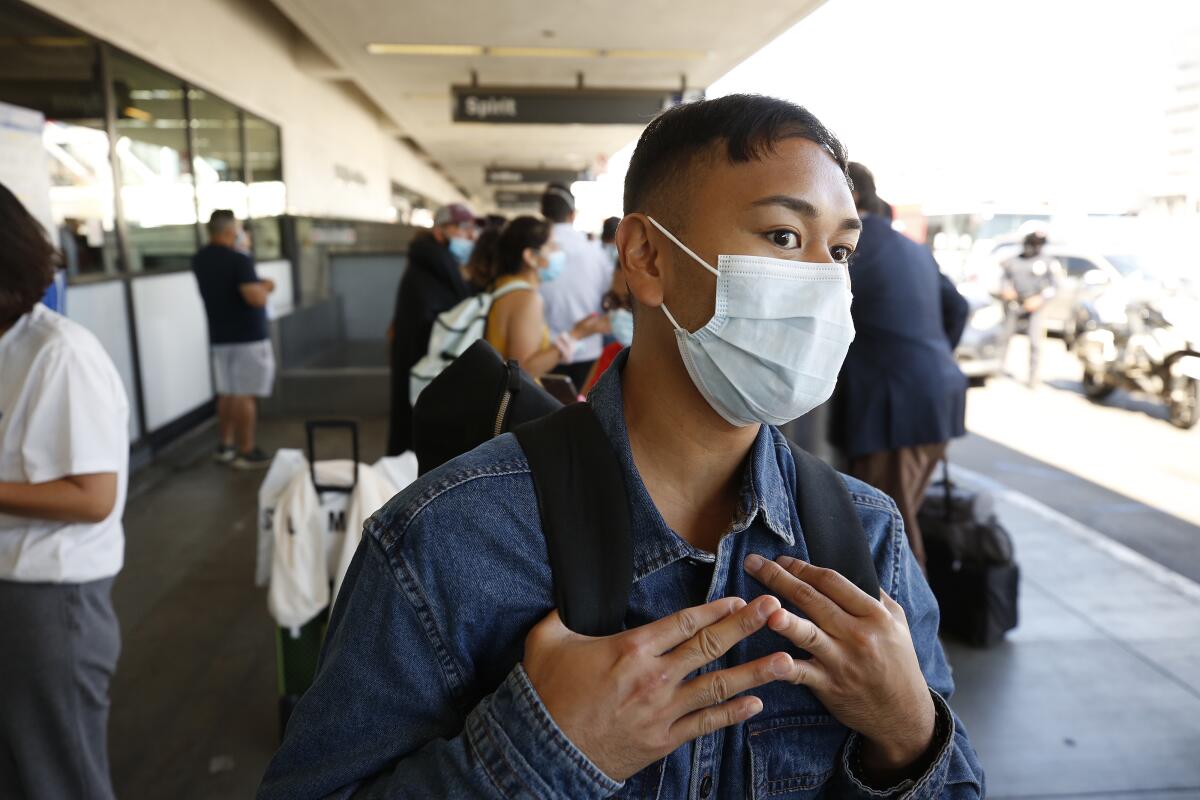
Jethro Reyes, 27, was standing outside Los Angeles International Airport last week after his flight and hundreds of others were canceled.
He had flown from Chicago to L.A. for a friendâs wedding.
âI just came here to have fun,â he said. âWeâre still following the guidelines of social distancing and wearing a mask.â
Later, back in Chicago, Reyes said he was beginning to regret the trip.
The registered nurse has been wearing a mask at home, where he lives with his parents and brother.
âKnowing what I know now, with cases going up, I probably would have second-guessed it,â he said.
At the Third Street Promenade outdoor mall in Santa Monica, Everett Farmer and Kevin McCormick played a game of Jenga.
They said they would continue masking and following public health guidance but didnât feel the need to adopt additional precautions because of Delta.
They arenât big on bars anyway and feel comfortable eating indoors at restaurants.
Farmer, 27, who works at Whole Foods, got his second vaccine dose last week. His brother recently had to be intubated after contracting COVID-19. Fear of Delta and encouragement from his brother moved him to get vaccinated.
âWe try our very best to distance ourselves from people,â he said.
McCormick said he thinks the media is overblowing the dangers of COVID-19.
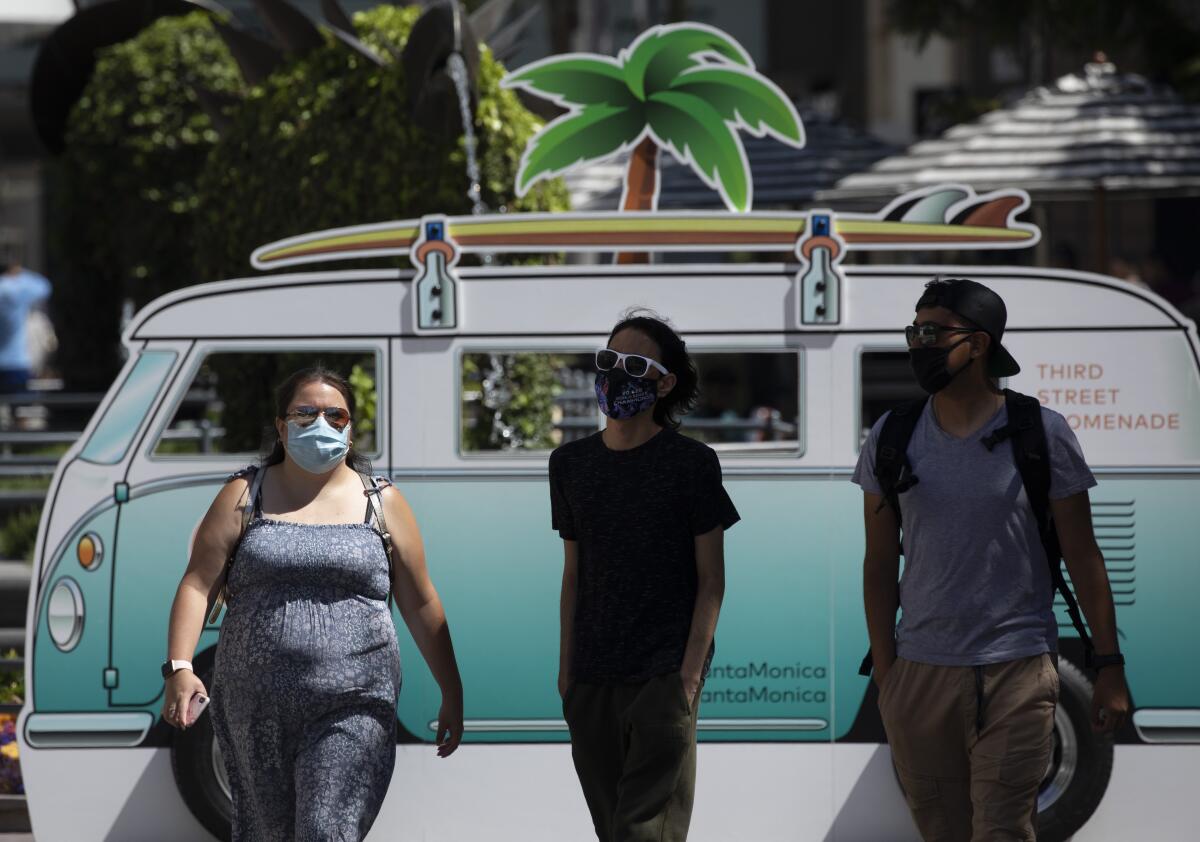
âHaving us mask up and avoid people who are unvaccinated is sort of like saying, well, âDrunk drivers can drive, and weâll stay home,ââ McCormick said. âIt doesnât make any sense.â
In densely populated, working-class neighborhoods like Lincoln Heights, the pandemic struck harder than in wealthier, whiter areas.
The COVID-19 case rate in Lincoln Heights, where almost all residents are Latino or Asian, is nearly three times that of Santa Monica.
âHow rosy the world looked several months ago depended on perspective,â said Vickie M. Mays, a professor of health policy and management at the UCLA Fielding School of Public Health. âI donât know that the opening up necessarily held for everybody the same experience.â
Natalie Dinh, 18, works three days a week at Titop Nails in Lincoln Heights, where her mother is a nail technician. The business, owned by family friends, was shut during the height of the pandemic.
Now, Dinh said, customers are back, even with Delta on the scene. These days, Dinh worries far more about her familyâs finances than the coronavirus.
âEven though weâre not comfortable with this pandemic, or weâre scared, we still have to get out there and make money,â she said.
A homebody, Dinh has been cautious around others since the beginning.
She rarely eats out at restaurants and always wears a mask. She is vaccinated, as are her parents.
âIt doesnât really concern me,â Dinh said of the Delta variant. âWeâre going through another pandemic. Been there, done that.â
More to Read
Sign up for Essential California
The most important California stories and recommendations in your inbox every morning.
You may occasionally receive promotional content from the Los Angeles Times.
